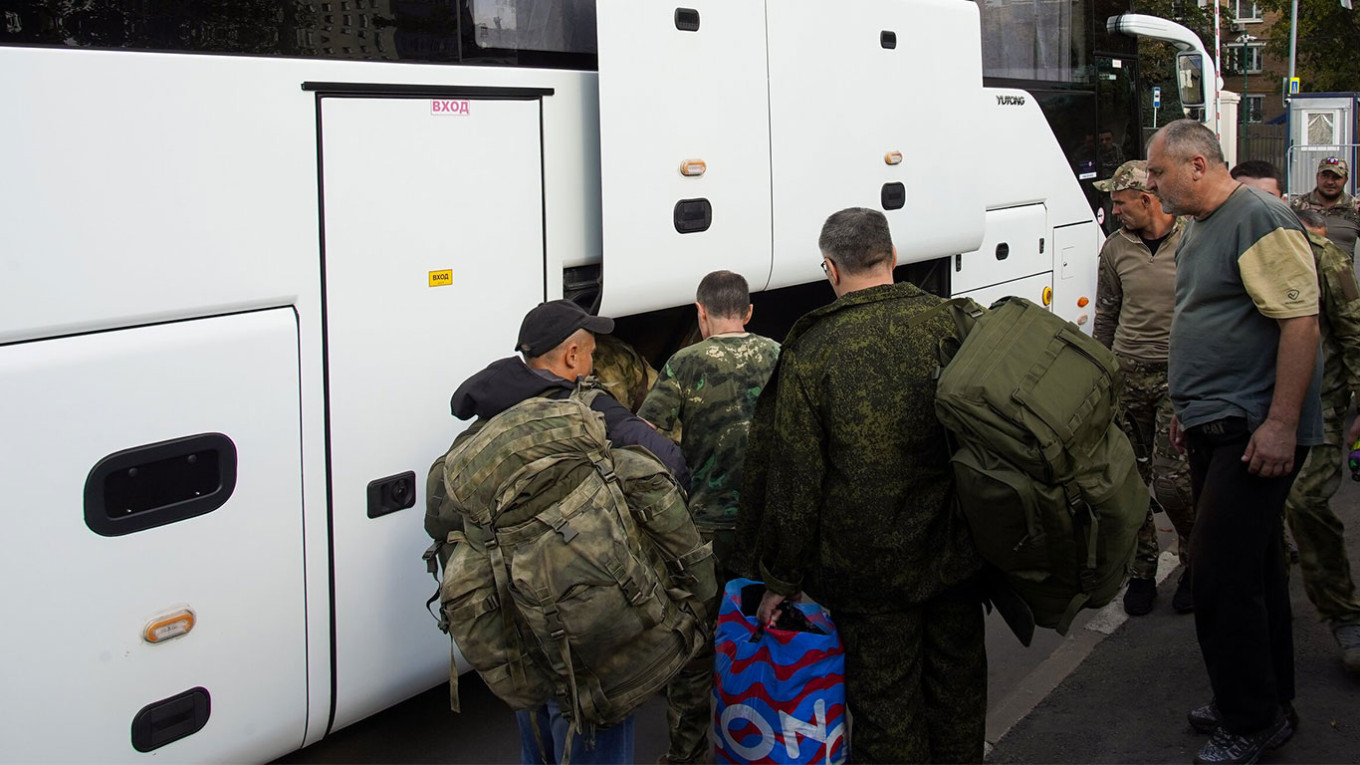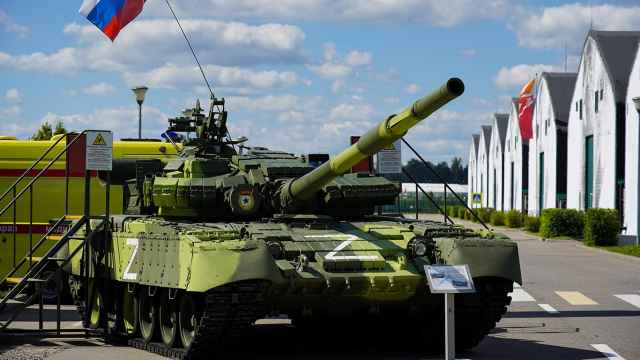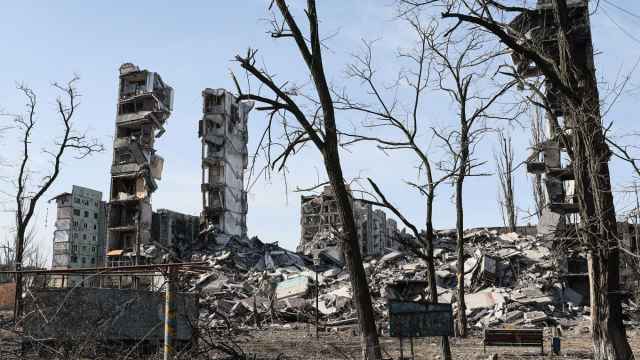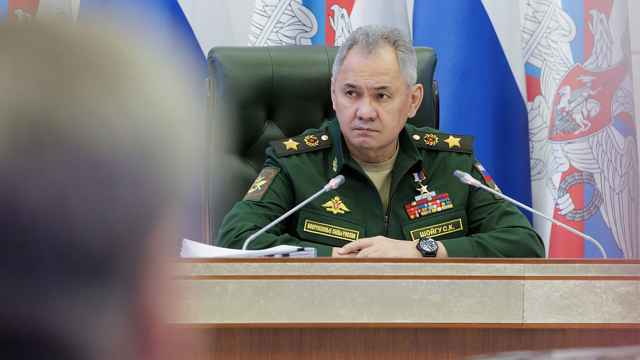Prisoners, homeless people and other socially disadvantaged individuals made up the majority of military recruits in the Siberian city of Krasnoyarsk over the past year, a local assemblyman has said.
“Over the last year our contract soldiers were mostly alcoholics, homeless people, derelicts, prisoners and others,” the local news website ngs24.ru quoted Krasnoyarsk city council member Vyacheslav Dyukov as saying at a televised session Wednesday.
Dyukov is a member of the ruling, pro-Kremlin United Russia party, which unanimously backs President Vladimir Putin’s policy initiatives including his 2022 decision to invade Ukraine.
Dyukov’s characterization of Russian servicemen came during discussions on recruitment numbers with the head of one of Krasnoyarsk’s seven municipal districts, Yury Savchuk.
Savchuk argued that his Zheleznodorozhny district, which boasts the lowest crime rates in Krasnoyarsk, has fulfilled Moscow’s 2024 contract soldier recruitment plan so far despite the mayor’s claims otherwise.
Russia is pushing a military recruitment drive in a bid to replenish its troop numbers in Ukraine, where its forces have been fighting for nearly two years.
Defense Minister Sergei Shoigu boasted in December that 490,000 contract servicemen and volunteers had been enlisted since the beginning of 2023. Around 387,000 of them are thought to be contract soldiers.
Federal authorities expect to find approximately 400,000 more people to sign army contracts in 2024, government sources told independent journalist Farida Rustamova.
This year’s recruitment plan is expected to be more challenging than the last because the military has exhausted its pool of potential recruits, the sources said in December.
A Message from The Moscow Times:
Dear readers,
We are facing unprecedented challenges. Russia's Prosecutor General's Office has designated The Moscow Times as an "undesirable" organization, criminalizing our work and putting our staff at risk of prosecution. This follows our earlier unjust labeling as a "foreign agent."
These actions are direct attempts to silence independent journalism in Russia. The authorities claim our work "discredits the decisions of the Russian leadership." We see things differently: we strive to provide accurate, unbiased reporting on Russia.
We, the journalists of The Moscow Times, refuse to be silenced. But to continue our work, we need your help.
Your support, no matter how small, makes a world of difference. If you can, please support us monthly starting from just $2. It's quick to set up, and every contribution makes a significant impact.
By supporting The Moscow Times, you're defending open, independent journalism in the face of repression. Thank you for standing with us.
Remind me later.






